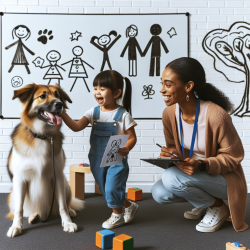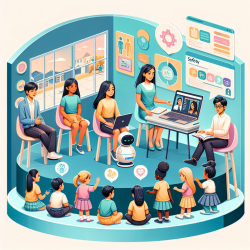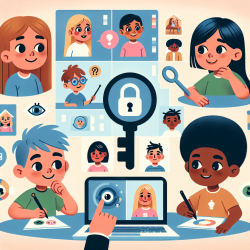In the field of speech-language pathology, fostering social communication in children with language impairments (LI) is a pivotal challenge. A recent pilot study titled Using Animal-Assisted Therapy to Facilitate Social Communication: A Pilot Study / L'utilisation de la zoothérapie pour faciliter la communication sociale : une étude préliminaire explores the potential of Animal-Assisted Therapy (AAT) in promoting these crucial interactions.
The study observed three female children, ages 4-8 years, over twelve weeks. Two out of the three participants demonstrated more sustained social interactions in the presence of a live cat compared to a toy cat or a preferred activity. These findings suggest that AAT can be an effective tool in speech-language therapy to enhance social communication.
Key Findings from the Study
- Two of the three participants showed improved social interactions with a live cat.
- Increased verbal continuations were observed, indicating more extended interactions.
- Teachers reported improvements in social communication skills in the classroom setting.
Implementing AAT in Practice
Based on these findings, practitioners can consider incorporating AAT into their therapeutic practices. Here are some steps to get started:
- Selection of Animals: Choose animals that are well-socialized and comfortable around children.
- Structured Sessions: Plan activities that involve the animal in a way that promotes interaction between the child and their peers.
- Monitoring and Adaptation: Continuously observe the child's interactions and adjust the therapy plan as needed to maximize benefits.
Encouraging Further Research
While this pilot study provides promising results, it also highlights the need for further research to generalize these findings. Future studies could explore the impact of different types of animals and the long-term benefits of AAT on social communication skills.
For practitioners passionate about improving outcomes for children, diving deeper into AAT could be a valuable endeavor. It offers a unique and engaging way to support children with language impairments, helping them build essential social communication skills.
To read the original research paper, please follow this link: Using Animal-Assisted Therapy to Facilitate Social Communication: A Pilot Study / L'utilisation de la zoothérapie pour faciliter la communication sociale : une étude préliminaire.










